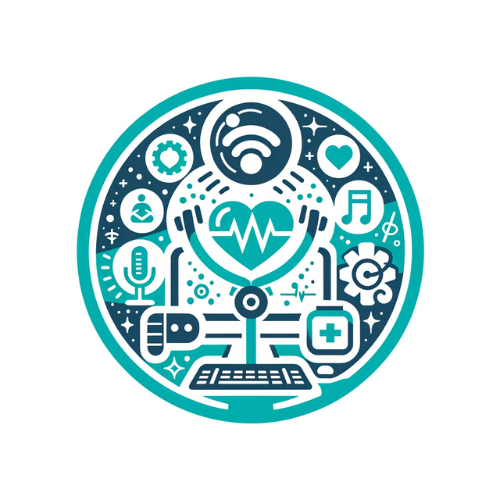Call us now:
USA News: Brain Health 2025 Essential Lifestyle Tips to Lower Stress
Table of Contents
Welcome to the USA news section, today we want to talk about brain health and practical tips for reducing stress in 2025
As we enter 2025, many Americans are seeking effective ways to safeguard their mental health while juggling busy schedules and rapidly evolving challenges.
A recent article, “10 Ways to Keep Your Mind Healthy in 2025”, highlights the importance of prioritizing your well-being through simple, scientifically-backed habits.
Whether you’re focused on improving cognitive function, lowering anxiety, or creating deeper social connections, there are strategic steps you can take to maintain a resilient mind.
Below, we’ll delve into valuable insights, from how to manage stress and nurture loving relationships, to why physical health is essential for brain health.
This guide is designed to help you create meaningful changes in your daily routine.
Remember, even incorporating one of these strategies can make a substantial difference in how you feel and function.
1. Move Your Body to Strengthen Your Brain
Physical activity remains a powerful ally in boosting mental well-being.
According to multiple studies cited in the “10 Ways to Keep Your Mind Healthy in 2025” feature, consistent exercise increases blood flow to the brain and helps form new connections between neurons.
This can serve as a protective buffer against depression, anxiety, and even cognitive decline over time.
Here are some key benefits:
- Immediate Mood Lift: Even a short walk can elevate your spirits, thanks to the release of endorphins—your body’s natural mood enhancers.
- Long-Term Protection: Regular exercise is associated with a lower risk of dementia. It may also keep depression at bay.
- Enhanced Cognitive Function: By stimulating the hippocampus, exercise can improve working memory, focus, and decision-making skills.
The Centers for Disease Control and Prevention (CDC) recommends at least 150 minutes of moderate-intensity aerobic exercise weekly, paired with muscle-strengthening activities twice a week.
Whether you choose brisk walking, dancing, cycling, or a high-energy sport, the key is consistency.
2. Address Anxiety Head-On
Anxiety disorders remain among the most common mental health issues in the United States.
The National Institute of Mental Health (NIMH) notes that about 31.1% of U.S. adults experience an anxiety disorder at some point in their lives.
Chronic worry can interfere with day-to-day functioning, so tackling anxiety proactively is crucial.
How Can I Avoid Anxiety?
Experts suggest a multipronged approach:
- Confront Your Fears: Gradually facing what triggers your anxiety can reduce its hold on you. A mental health professional can guide you through exposure therapy, or you can start by journaling about your worries at home.
- Focus on Values: If generosity or community work resonates with you, volunteer or join a group that aligns with your personal ideals. This helps shift your attention away from anxious thoughts.
- Avoid Catastrophic Thinking: When intrusive worries arise, ask yourself whether the mental energy spent on them is proportionate to the actual risks. Reflecting on past episodes can help you recognize patterns of excessive fear.
By actively managing anxiety, you bolster emotional resilience and free up mental bandwidth for more creative and fulfilling pursuits in 2025.
3. Challenge Your Mind With New Tasks
Brain-stimulating activities can sharpen your cognitive skills and potentially lower the risk of cognitive decline.
Although the debate continues on whether crosswords or brain-training apps can significantly “raise your IQ,” most researchers agree that learning something new keeps your brain engaged.
Mental challenges to consider:
- Puzzles & Games: Crossword puzzles, Sudoku, or online brain-training platforms can fine-tune your memory and problem-solving skills.
- Reading & Language Learning: Tackling newspapers, books, or learning a new language exercises different areas of the brain.
- Creative Outlets: Painting, writing, or playing a musical instrument can create fresh neural pathways.
The bottom line: Engage in any mentally stimulating task that you enjoy.
The sense of mastery and achievement can further boost motivation and emotional well-being.
4. Manage Stress by Prioritizing High-Quality Sleep
Surveys repeatedly show that Americans are chronically sleep-deprived.
Inadequate rest exacerbates stress, impairs mood, and may even raise the risk of depressive disorders.
Achieving 7-9 hours of sleep per night is a straightforward yet powerful tool to support brain health in 2025.
What Is the Best Way to Manage Stress?
While there’s no one-size-fits-all strategy, improving sleep habits is a fundamental step:
- Establish a Routine: Going to bed and waking up at the same time each day helps regulate your circadian rhythm.
- Create a Calming Environment: Keep your bedroom cool, quiet, and dark to promote deeper rest.
- Limit Screen Time: Blue light from phones and TVs disrupts melatonin production, the hormone that induces sleep.
If insomnia or poor sleep quality persists, consider trying Cognitive Behavioral Therapy for Insomnia (C.B.T.-I.), which experts, including those at the American Sleep Association, often recommend over long-term sleep medications.
5. Deepen Social Connections for Emotional Resilience
In the race to succeed in personal and professional realms, it’s easy to overlook the power of social relationships.
Yet studies show that having a robust support system can lower anxiety and depression.
Loneliness, on the other hand, has been linked to a higher risk of Alzheimer’s disease and other cognitive impairments, as chronic isolation triggers the body’s stress response.
How Do Love and Community Influence Happiness?
Love, freedom, and society serve as fundamental pillars for emotional well-being.
Whether you’re single, married, or living in a busy household, nurturing meaningful interactions protects your mental health:
- Check-In Regularly: A short phone call or text with loved ones can brighten both your mood and theirs.
- Engage in Group Activities: From local clubs to online communities, shared interests foster friendships and reduce loneliness.
- Volunteer or Mentor: Helping others not only benefits recipients but can also elevate your own sense of purpose.
Cultivating these bonds may require effort, but the long-term benefits—reduced stress, better mental health, and higher life satisfaction—are well worth it.
6. Practice Mindfulness and Meditation
Mindfulness and meditation offer powerful ways to regain clarity and serenity.
According to recent research, these practices:
- Strengthen the Prefrontal Cortex: This area of the brain helps regulate decision-making, impulse control, and complex problem-solving.
- Decrease Activity in the Amygdala: Known as the “fear center,” the amygdala is responsible for rapid stress responses. Meditation can help keep it in check.
- Improve Focus and Cognitive Abilities: Consistent mindfulness training can enhance memory, concentration, and overall mental resilience.
Even dedicating 10-15 minutes each day to mindful breathing or guided meditation can significantly reshape how you handle stress.
If you prefer a more active form, consider yoga, which combines physical movement with mindfulness to cultivate holistic well-being.
7. Plan Strategically for Sustained Well-Being
Strategic planning is not just for businesses—it’s also a cornerstone of personal growth and stress management.
Setting clear goals for your physical and mental health helps prevent overwhelm and procrastination.
Here are some practical ways to integrate planning into your routine:
- Nutrition Goals: Focus on balanced meals rich in fruits, vegetables, omega-3 fatty acids, and whole grains. Research suggests these nutrients can support cognitive health.
- Time Management: Use calendars or apps to break down tasks into manageable steps, reducing last-minute panic.
- Self-Care Routines: Schedule regular breaks for yoga, journaling, or hobbies that recharge your emotional batteries.
The American Psychological Association often cites these elements as key in maintaining robust mental health.
By taking a structured approach, you’ll be better equipped to adjust to life’s inevitable curveballs.
8. Embrace “Good Enough” Thinking
A striving for perfection may sound admirable, but it can backfire, fueling an overly critical inner voice and spiking anxiety levels.
Instead, many therapists suggest adopting a “good enough” attitude.
This doesn’t mean settling for mediocrity—it means acknowledging your best effort under the circumstances.
When you make a mistake, distance yourself from negative self-talk:
- Use Third-Person Self-Talk: Saying “You made a mistake, and that’s okay” can feel more encouraging than “I’m so stupid.”
- Acknowledge Accomplishments: Even if your performance wasn’t flawless, focus on what you did achieve.
- Review and Improve: Perfectionism can stifle growth, while a “good enough” mindset allows you to learn from errors and move on.
9. Reinforce Physical Health Metrics
At the Massachusetts General Hospital McCance Center for Brain Health, researchers emphasize the link between physical health and cognitive well-being.
Higher blood pressure, high cholesterol, and other cardiovascular risk factors can escalate inflammation and accelerate memory or attention problems over time.
If you’re unsure about your current health status, scheduling an annual physical exam is a solid first step.
Improving simple metrics—like controlling blood pressure, optimizing cholesterol levels, or adopting a moderate exercise routine—can pay huge dividends for your brain health in 2025.
10. Forgive on Your Own Terms
Forgiveness is often touted as the key to emotional freedom, yet it’s also valid to take your own pace or even opt not to forgive at all.
Therapists mention that genuine forgiveness is an evolving emotional process, not a moral requirement.
If you do choose forgiveness, remember:
- You Don’t Have to Reconcile: Forgiving someone does not mean you must remain in close contact with them.
- Your Healing, Your Timeline: Sometimes it takes weeks, months, or even years to let go of resentment or anger.
In short, you own the process.
When (and if) you decide to release those burdens, you can free up significant mental energy for new and more uplifting endeavors.
Elevate Your Brain Health 2025
Integrating these lifestyle changes—from regular exercise and improved sleep to meaningful social engagement and mindful self-talk—can significantly bolster your brain health in 2025.
Whenever you feel overwhelmed by anxiety or stuck in negative thought patterns, remember that simple shifts can yield powerful transformations.
If you notice persistent anxiety, stress, or signs of depression, consider reaching out to mental health professionals for personalized guidance.
Click here to schedule an appointment with a brain health expert and get the tailored support you need.
Meditation remains one of the most impactful practices you can adopt:
- It strengthens the prefrontal cortex, enhancing decision-making and emotional regulation.
- It decreases activity in the amygdala, thus reducing fear and anxiety responses.
- It improves attention and cognitive abilities, fostering clarity and focus in daily tasks.
So embrace love, community, and a spirit of growth on your journey.
As we like to say, Breathe, Heal, Evolve.
Stay Connected and Keep Learning
For ongoing insights into emotional wellness, subscribe to The Brain Care Podcast.
We also invite you to subscribe to our blog for regular updates on how to nurture your mind, body, and spirit in 2025.
Bibliography
- National Institute of Mental Health (NIMH). “Any Anxiety Disorder.” 2023.
- American Psychological Association. “Stress in America 2023.” APA, 2023.
- Centers for Disease Control and Prevention (CDC). “Physical Activity Basics.” CDC, 2023.
- American Sleep Association. “Sleep Hygiene.” ASA, 2023.
- New York Times Article: Caron, Christina, and Dana G. Smith. “10 Ways to Keep Your Mind Healthy in 2025.” December 30, 2024.
Source link to the news article:
https://www.nytimes.com/2024/12/30/well/mind/10-ways-keep-brain-healthy-2025.html
Read Next: USA News: Bird Flu Urgent Tips for Boosting Brain Health Amid Concerns in 2025



